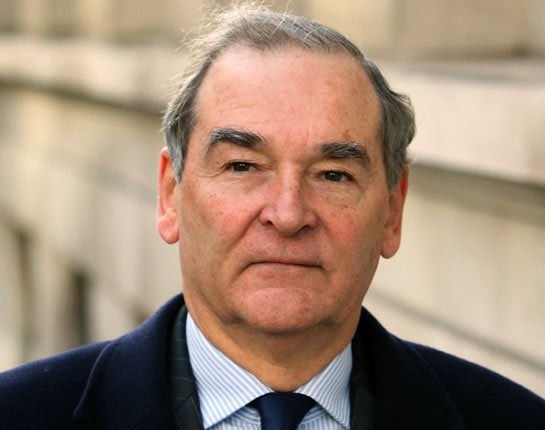Tony Blair's former Iraq envoy lobbied for BP oil contracts

Your support helps us to tell the story
From reproductive rights to climate change to Big Tech, The Independent is on the ground when the story is developing. Whether it's investigating the financials of Elon Musk's pro-Trump PAC or producing our latest documentary, 'The A Word', which shines a light on the American women fighting for reproductive rights, we know how important it is to parse out the facts from the messaging.
At such a critical moment in US history, we need reporters on the ground. Your donation allows us to keep sending journalists to speak to both sides of the story.
The Independent is trusted by Americans across the entire political spectrum. And unlike many other quality news outlets, we choose not to lock Americans out of our reporting and analysis with paywalls. We believe quality journalism should be available to everyone, paid for by those who can afford it.
Your support makes all the difference.Tony Blair's special envoy to Iraq lobbied the country's Prime Minister on oil contracts for BP just three months after leaving government service, newly released official documents have revealed.
Sir Jeremy Greenstock, who as Britain's ambassador to the United Nations had made the case for invading Iraq, served as UK special representative to Iraq from September 2003 to June 2004. Soon after, he met Iyad Allawi despite having been warned against developing business links with Iraq by the watchdog responsible for ethical oversight on the activities of former civil servants.
The Advisory Committee on Business Appointments had specifically asked Sir Jeremy not to visit Iraq on business, nor have commercial dealings with companies there, for six months after taking up the post of special adviser with BP in June 2004. However, three months later Sir Jeremy and the then BP chief executive Lord Browne, met Mr Allawi during his visit to London. An internal email by an official in the Department of Trade and Industry said: "BP Meeting: in the end, BP decided they wanted a "private" meeting (Allawi, Lord Brown [sic], Sir Jeremy Greenstock and Mike Daly, President BP Middle East) so I dropped out."
The heavily redacted memorandum, by "Richard", claimed that Lord Browne was privately keen to do business in occupied Iraq while publicly denying that was the case. The company was particularly keen to develop Rumaila, near Basra, Iraq's largest oilfield.
The email continued: "I believe they pushed BP's willingness to be involved in Iraq (which conflicts with Lord Brown's [sic] public statements) in general and the study on Rumaila in particular.."
The document was obtained under the Freedom of Information Act by Greg Muttitt, author of Fuel on the Fire: Oil and Politics in Occupied Iraq. Mr Greenstock has been accused of breaking the spirit of the conditions imposed by the Advisory Committee. Mr Muttit said: "The ruling that Greenstock could not do business within Iraq shows up how limp the regulatory system is. All business at the time was being done outside Iraq, for security reasons."
The released documents also contained an email from Sir Edward Chaplin, then the British ambassador to Iraq, to BP executive Tony Renton, in August 2004 showing that he lobbied the Iraqi oil ministry on behalf of BP.
In the email Sir Edward mentions his meeting with oil minister Thamer Ghadban: "I raised the Rumaila bid at the end of our meeting, stressing the importance I saw in having a major British oil company involved early in the development of Iraq's oil industry."
Lord Browne had denied that the company was too close to Tony Blair. He told shareholders it was "neither fair nor reasonable" for critics to label BP "Blair Petroleum" because of its links with the Prime Minister.
In 2009 BP won a 20-year deal to manage the Rumaila field and is set to receive returns, along with its partner CNPC, worth $660m a year after tax.
Join our commenting forum
Join thought-provoking conversations, follow other Independent readers and see their replies
Comments